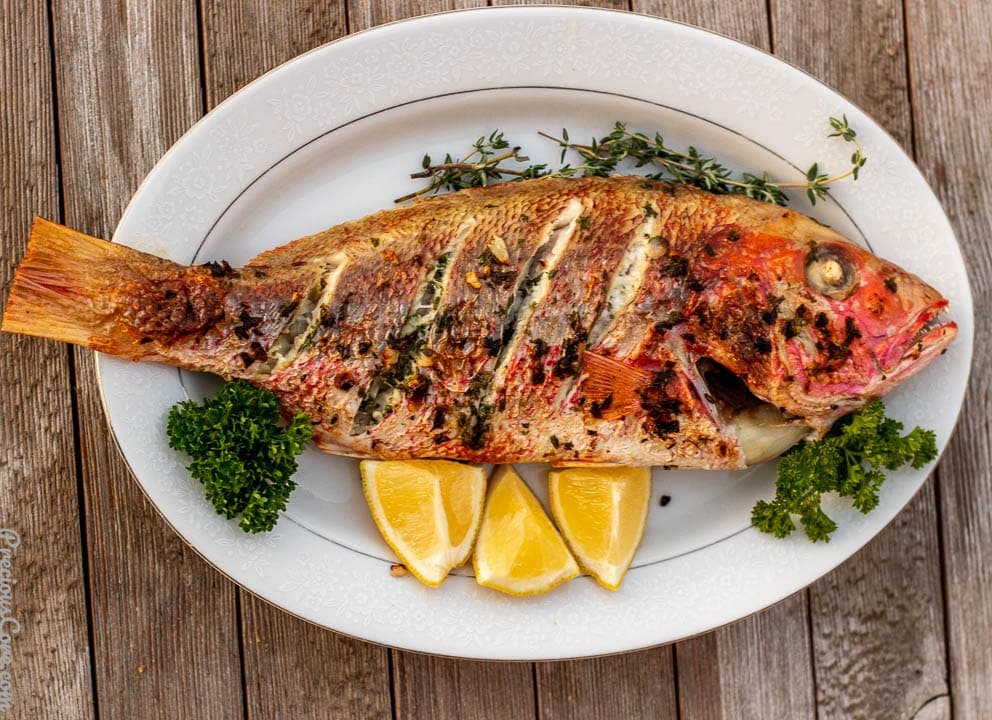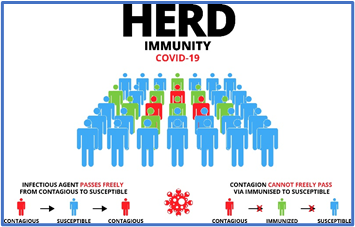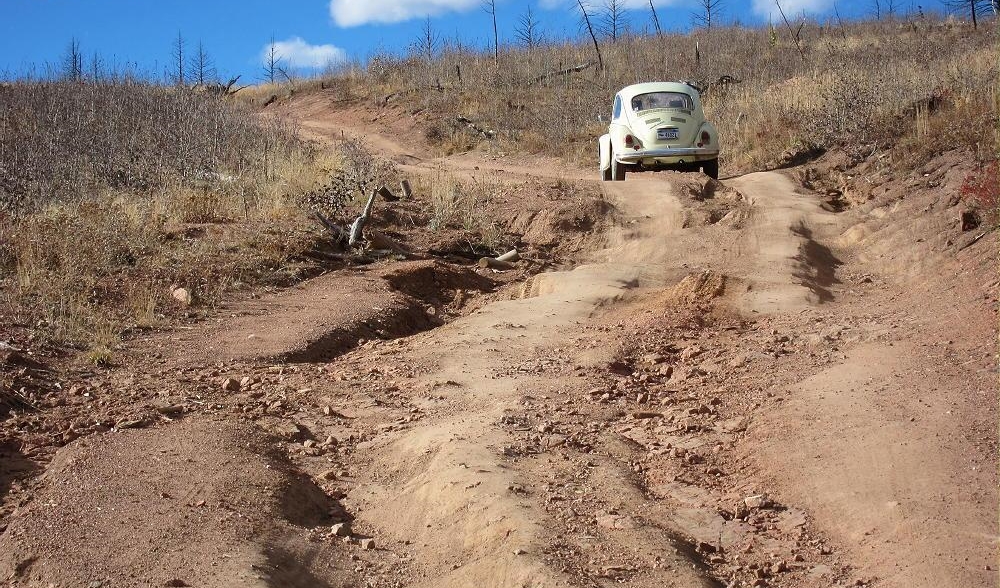A post on Facebook today caught my eye. It was an appeal to post something about “your most memorable meal.” That got me to thinking. And, when I think, sometimes my mind takes off in strange directions. Call it a lack of focus, or ADHD, or whatever – my mind is directed by little voices that sometimes send me into uncharted waters. Today, the little voices have me going in all sorts of strange directions. What would I choose as my most memorable meal, the writer asks? I can think of quite a few. My first communion? I’ll bet that’s not a common response! My first Thanksgiving dinner alone as a college freshman – shared with nobody as I sat at the counter at a local diner because the dorm cafeteria was closed? Most of my dormmates were either back home for Thanksgiving or else invited to dinner by their roommates – but not me. That was memorable to be sure, but not in a good way. Oyster stew on Christmas eve as a youth growing up in Denver? I hated oyster stew, but I never let it ruin the anticipation of gifts to be opened the next morning. I can think of quite a few candidates, but one stands out in my mind. It takes a bit of explaining.
The year, I believe, was 1970. Headlines of those days were dominated by news of the Vietnam war. Nixon was trying to figure out a way to extricate ourselves from that war “with honor.” Truth be told, we were getting our ass kicked fighting a war we were not willing to win. Folks like me were dying every day over there — the purpose known only to God. The draft was still in effect. Young men of my age were being conscripted to serve in Vietnam, like it or not. I was not against the war, really. The “domino theory”, being used to justify our intervention in Southeast Asia, seemed reasonable enough to me. But I had no desire whatsoever to be sent off into the jungle to fight, or even die. So, I managed to secure a good job working in the Pentagon as a civilian defense analyst on the staff of the Secretary of Defense. Crazy, huh? But the job did prove helpful in my quest for an occupational deferment, so there I was, and happy to be there.
What does this have to do with my most memorable meal, you might ask? Well, bear with me, folks, as I try to paint the picture. Working in the Pentagon, I became friends with a fellow named Ed. Ed and I were about the same age, and as I recall, his job in the Pentagon was being served in uniform. I cannot remember exactly what Ed did there, but like me and the other 20,000 people who reported to work at the Pentagon every morning, I am sure it was crucial to the success of our war effort. Ed was a strong fellow – a high school and collegiate football player from Minnesota. He was a “jock” – me, not so much. But we enjoyed good bachelor times together in Washington. Anyway, when the time came for me to take my allotted 2-week vacation, I mentioned it to Ed, and the two of us decided to do a European road trip together. Ed had never been to Europe before. I had spent some time there while a college student in France. So, I thought I knew my way around, and Ed was a fun guy to be around and would come in handy sharing car and hotel expenses. We decided to do it. I was excited to take this trip, and enthusiastically told my parents of my plans. I thought no more of my discussions with my parents, but unknown to me, knowledge of my travel plans set my father in motion on a secret mission I would only learn about later.
So, when the time came, off we went, Ed and me. As I recall, we flew from Washington, D.C. to Munich, Germany. There, we rented a VW bug (what else?!), and we were on our way. But as I learned later, between the time when I mentioned the trip to my parents and our flight to Munich, my father had contacted his brother-in-law, George Davis, who lived in Peoria, Illinois. George Davis was an interesting man. He had a kind spirit and an engaging grin – always seemed at the top of his game and fully in control. To me, he was a fun uncle to be around. But George was enigmatic. While a good husband and father to 2 children, Uncle George was not exactly setting the world on fire professionally. I remember that he had moved from one job to another, the last one being at a Chicago department store. But, from the recorded oral history of his son (Cullom) that I received after Cullom’s passing (and many years after George’s death), I learned that my Uncle George was a pretty good liar. For a period of about 6 months, as Cullom states, his father would take the train daily to Chicago to go to work, returning every evening, only to repeat the next day. The thing was, he did not have a job in Chicago. He would simply take the train to Chicago, and then sit in the public library scouring the newspaper for job openings or reading books that interested him. He just never bothered to tell his wife and kids that he was unemployed. That’s hard to pull off! Cullom did not explain how they paid the bills. So, in a nutshell, that was my Uncle George. He could not have been more different than his brother, Shelby Cullom Davis.

Known to my father by reputation only, Shelby Cullom Davis was an American businessman, investor, and philanthropist from New York. He founded a leading investment firm under his own name. A graduate of Lawrenceville, Princeton, and Columbia, he received his doctorate in political science at the Graduate Institute of International Studies in Geneva, Switzerland in 1934. He was an advisor to Thomas Dewey during Dewey’s presidential campaigns. Today, he would be considered a prominent member of the “ruling class.” Politically, Shelby Cullom Davis was a proud conservative and a significant donor to conservative political figures, Richard Nixon among them. Whether because of his financial support or because he was an experienced international businessman, Richard Nixon nominated Shelby Cullom Davis to be the United States Ambassador to Switzerland, where he served from July 1969 through April 1975. My father was aware of Shelby Cullom Davis and his position in Switzerland. So, learning of my plans to visit Europe with Ed, my father called his brother-in-law, George Davis, who then called his brother, Shelby Cullom Davis, to advise of my plans. Go figure! You know how it works – you know a guy who knows a guy who knows another guy…. Anyway, all of this went on without my knowledge, until…
Prior to our departure for Munich, both Ed and I got a very formal letter in the mail. Under the letterhead of the United State Ambassador to Switzerland, the nearly identical letters began something like (paraphrased), “The Ambassador would like to invite you to a dinner in your honor at the Residence of the Ambassador in Bern, Switzerland on (some date that I do not remember) at 5PM.” Signed, Shelby Cullom Davis, United States Ambassador. Huh? Could this be real? I had never met Shelby Cullom Davis. Suspecting my father’s involvement, I called him to ask. Dad confessed that he had reached out to Shelby through Uncle George, but only to say that I would be in Europe on vacation. He did not know what Shelby would do with that information. Scratching our heads, Ed and I both RSVP’d that we would come to the dinner, and we set about to plan an itinerary that would put us in Bern, Switzerland on the date of the dinner.
Although it was not far from Munich to Bern, our road trip took us on a meandering path, stopping along the way overnight. By the time we got to Bern, we were both starting to get a little road weary. But after we arrived in Bern, we found a place to stay overnight and went about cleaning up our act and pulling out the suits, shirts, ties, and shoes we had packed for the occasion. We then drove to the Ambassador’s residence. The place was imposing. Located close to downtown and the Houses of Parliament, the residence dates back to the 19th century. It sits on about 4 acres and has served as the United States Ambassador’s residence since the U.S. purchased the property in 1947. We pulled our little VW bug into the courtyard in front of the residence, where we found a “gaggle” of big black Mercedes sedans parked with military precision. Our car did not seem to fit in the company of this crowd, so we found a little parking place behind a bush to hide the car while we were inside. A parking attendant directed us to the front door.

Immediately upon entering the foyer, we were met and formally greeted by Shelby Davis and his wife. We had our pictures taken with the Ambassador by a professional photographer, and we were invited to sign the guest book which had been set out for this occasion. As I signed the book, I glanced into the next room where I saw quite a few people, none of whom I knew, but all of whom looked very much like they belonged in those Mercedes cars out in front. Although Ed and I were pretty much tongue-tied, we ventured into the crowd and introduced ourselves. Cocktails, of course, were served as we attempted to find some common ground with these people, all of whom seemingly spoke English, but with a variety of accents. The Ambassador “worked the room” like a professional, and everyone (including Ed and I) were fully enjoying the chit-chat and the ambience of the place. The cocktail party warm-up got more interesting when Ed and I were introduced to two very attractive young French-speaking Swiss girls. They were to be our companions for the evening. How thoughtful of the Ambassador! I spoke a little French, so I had fun trying to converse with my date. Ed was lost at sea, being totally dependent upon his date speaking English. Notwithstanding the language barrier, they seemed to hit it off well, and I was having a great time with my date for the night. The time arrived for dinner, and we were invited into the dining room where we were all seated around a large rectangular dining table. I would guess that there were perhaps 20 people in attendance, husbands and wives included.
There were place cards on the dining room table indicating who was supposed to sit where. Ed and I were on opposite sides of the table, sitting alongside our female companions. Except for our companions, Ed and I were probably 20 years younger than the next youngest person in attendance. As others took their seats around the table, the Ambassador and his wife made their way to the head of the table, where, after wine was served, he proposed a toast to Ed and me. Yikes! Then, the most amazing thing happened. Speaking without notes, Ambassador Davis proceeded to go completely around the table, introducing each guest as he went. He recited their names, their countries and cities of residence, their jobs, or positions of note, and one or two little anecdotes about each person as he went around the table. Mostly, the men were bankers or involved somehow with international finance or commerce. When he got to me, Ambassador Davis described his “relationship” with me through Uncle George, my job in the Pentagon, and some other obscure fact that made me wonder – how did he know that about me? It seemed impossible. I wondered, as he spoke, what he would say about Ed, who was only there because he was my travelling companion. But without missing a beat, the Ambassador went on to describe Ed, his Minnesota roots, his job, his love of football, and whatever. It was spooky – how did he know all that about Ed? He must have a hell of a staff researching this stuff.

Anyway, we then started to eat. It was probably a 3 or 4 course dinner, and other than the general impression that the food was delicious, I recall nothing of what we ate – except for one thing. The first course, an appetizer, was fish. Two big fish, actually. Each fish was presented by one of two waiters, one for each side of the table. Each waiter carried a tray upon which was a huge fish, beautifully presented and garnished. Being observant, I figured out that each of us was supposed to scoop out a proper serving of fish to put on our plate, as the waiters made their way around the table. You know, when you are not exactly sure what you are supposed to do, “monkey see, monkey do.” Ed, sitting across from me, thought the fish was the main course. Totally understandable, as Ed hailed from the frozen wasteland of Minnesota – flyover country. He seemed oblivious to the actions of others seated on either side of him. As a guest of honor, the waiter on his side of the table served Ed first. When the waiter approached him, Ed exclaimed, “Wow, what a great looking fish!” As jaws dropped around the table, he then slid the entire fish down onto his plate and dug in. Not totally sure how we got past that, but the rest of the meal went on without incident.
After dessert was served and enjoyed by all, the Ambassador stood and announced that the ladies would be excused to the drawing room, while all the men at the table would remain for after-dinner drinks, cigars, and “man-talk.” I doubt that this protocol would pass muster today. Times have changed. With the current emphasis on political correctness, such an announcement would likely be considered insensitive, if not offensive. But, the ladies complied, and Ed and I remained in the smoke-filled room to join in the conversation about business, politics, or whatever manly subject came up. It was surreal – like a scene out of a Clark Gable movie.
Nothing else about the dinner stands out in my mind as I write. I guess Ed and I eventually made our way out the front door, sneaked over to our camouflaged VW bug, and headed back to our hotel for the night. I picture us driving out of the residence courtyard, slowly, with lights out, so as not to be noticed. Our conversation in the car was something like, “What just happened?!” I know that the Ambassador sent the pictures taken upon our arrival to my father, along with the guest book we signed. That was a nice gesture. I have no idea where those pictures are, nor the guest book, today.
Isn’t it strange how some random post on Facebook can elicit such memories?













 Travel is restricted. Some of us are forbidden from leaving our homes for any reason other than to purchase necessary food or in the event of a medical emergency. Our favorite brand of gin is no longer available because the distillery is now making hand sanitizer. Staples, like flour, beans, and bread cannot be found on the shelves. Shopping hours at the local grocery store are now restricted by age group. Foreign travel is unthinkable. Real estate open houses are cancelled. Neighbors and friends are out of work or have had to shutter their business. Weddings and funerals have been cancelled. Visits to nursing homes to visit elders residing there are no longer allowed. Grandchildren are discouraged from visiting their grandparents. Nonviolent “at risk” elderly prisoners are being considered for release on humanitarian grounds. Baseball, basketball, hockey, golf, soccer, cricket, and every other spectator sport where 10 or more individuals gather to watch are cancelled. People’s life savings are nearly cut in half overnight. Libraries, zoo’s, and other public buildings are closed to the general public. Elective surgeries are cancelled. Attending childbirth is no longer possible for the father. Owners are no longer allowed to accompany their pets during visits to the veterinarian. And the list goes on.
Travel is restricted. Some of us are forbidden from leaving our homes for any reason other than to purchase necessary food or in the event of a medical emergency. Our favorite brand of gin is no longer available because the distillery is now making hand sanitizer. Staples, like flour, beans, and bread cannot be found on the shelves. Shopping hours at the local grocery store are now restricted by age group. Foreign travel is unthinkable. Real estate open houses are cancelled. Neighbors and friends are out of work or have had to shutter their business. Weddings and funerals have been cancelled. Visits to nursing homes to visit elders residing there are no longer allowed. Grandchildren are discouraged from visiting their grandparents. Nonviolent “at risk” elderly prisoners are being considered for release on humanitarian grounds. Baseball, basketball, hockey, golf, soccer, cricket, and every other spectator sport where 10 or more individuals gather to watch are cancelled. People’s life savings are nearly cut in half overnight. Libraries, zoo’s, and other public buildings are closed to the general public. Elective surgeries are cancelled. Attending childbirth is no longer possible for the father. Owners are no longer allowed to accompany their pets during visits to the veterinarian. And the list goes on. Each of these items often opens up some pathway in the brain wiring that “gins up” associated memories. Some say that hypnosis can be very effective in helping people remember things. There are good memories, and there are bad memories. In a posting dated back to 2007, Web MD published the following:
Each of these items often opens up some pathway in the brain wiring that “gins up” associated memories. Some say that hypnosis can be very effective in helping people remember things. There are good memories, and there are bad memories. In a posting dated back to 2007, Web MD published the following: in my brain leading to these “happy places”. Conversely, my brain pathway to painful or unhappy memories must be a winding dirt road full of potholes, gullies, and littered with fallen trees and rocks. There is a great deal of “signal loss” along the way.
in my brain leading to these “happy places”. Conversely, my brain pathway to painful or unhappy memories must be a winding dirt road full of potholes, gullies, and littered with fallen trees and rocks. There is a great deal of “signal loss” along the way. We built a pole-vaulting pit in Dave’s back yard and spent hours learning how to pole vault, using whatever garden equipment we could find as our poles. During winter, we took great joy in “hitching” on the icy streets on the way to school – hitching involved running out into the street behind a moving car, grabbing the back bumper, crouching down low (so as not to be seen in the driver’s rear view mirror), and then sliding along in our street shoes on the ice (and trying not to inhale the exhaust fumes in the process). Hitching was made somewhat more difficult by the fact that we were almost always carrying an armful of books to and from school. Our daredevil actions rarely ended poorly. Occasionally, a driver would see us or sense our presence behind his car. When that happened, we would scamper away with no fear of being caught, since the driver could not really abandon his car in the street to chase us. Occasionally, the ice on the street would abruptly end in a patch of bare pavement. In our position behind the car, we could not see this coming, and would find that our graceful glide across the ice would end with a painful road-rash as we tumbled onto the pavement. One of my friends has a remarkable, seemingly photographic memory. He recalls the fine details of escapades that I recall only as vague shadows. But, what all of these memories, both his and mine, have in common is that, generally speaking, they portray events that were positive, joyful, adventuresome, or whatever. There are lots of memory road signs along that superhighway leading to pleasant memories, but few along that horrible dirt road. I am not sure how to “square” my experience with the research study cited by WebMD, above.
We built a pole-vaulting pit in Dave’s back yard and spent hours learning how to pole vault, using whatever garden equipment we could find as our poles. During winter, we took great joy in “hitching” on the icy streets on the way to school – hitching involved running out into the street behind a moving car, grabbing the back bumper, crouching down low (so as not to be seen in the driver’s rear view mirror), and then sliding along in our street shoes on the ice (and trying not to inhale the exhaust fumes in the process). Hitching was made somewhat more difficult by the fact that we were almost always carrying an armful of books to and from school. Our daredevil actions rarely ended poorly. Occasionally, a driver would see us or sense our presence behind his car. When that happened, we would scamper away with no fear of being caught, since the driver could not really abandon his car in the street to chase us. Occasionally, the ice on the street would abruptly end in a patch of bare pavement. In our position behind the car, we could not see this coming, and would find that our graceful glide across the ice would end with a painful road-rash as we tumbled onto the pavement. One of my friends has a remarkable, seemingly photographic memory. He recalls the fine details of escapades that I recall only as vague shadows. But, what all of these memories, both his and mine, have in common is that, generally speaking, they portray events that were positive, joyful, adventuresome, or whatever. There are lots of memory road signs along that superhighway leading to pleasant memories, but few along that horrible dirt road. I am not sure how to “square” my experience with the research study cited by WebMD, above.
 “She likes me!”, I thought to myself, “She really likes me!!” This was a good memory – a great memory, in fact! I immediately called Dave, Joe, and a few other close friends to say what had happened. Nobody could believe it. Hmmm… What does that say about how I was perceived by my peer group? Anyway, that is where the good memories sort-of peter out. Now, the story veers off the superhighway onto the pothole-pocked winding dirt road leading to bad memories. The details remain fuzzy (probably to spare me the pain of recalling them), but I remember taking this girl to the Prom where we were feted as Queen and (tagalong) King of the Prom, in some brief ceremony at the beginning of the evening. The Prom was being held in the gymnasium of our high school. I remember going to get us both glasses of punch from a table across the room, and when I returned, she was gone. Nowhere to be found. Someone said that she had been seen leaving the gym. What?! Why? When was she coming back? Well, deep in the recesses of my unhappy memory cache, I recall learning after the fact that she left the Prom to go out on a date with her boyfriend, who attended another high school, and who therefore could not accompany her to the Prom at our school. Until this happened, I knew nothing of this interloper. I was apparently a “placeholder” King. She needed a King, and I was her King-for-a-Day, or night, or whatever! Color me naïve! I recovered, but apparently, I have never forgotten. It must have left a psychic scar somewhere, and even the difficulty of traversing that winding dirt road into the darker recesses of my brain does not prevent me from recalling that evening. But not the details. How did I get home? Who else did I dance with that night? Did I leave right away, or did I “tough it out” until the end of the evening? Did people console me? Did people laugh at me? I don’t remember any of that.
“She likes me!”, I thought to myself, “She really likes me!!” This was a good memory – a great memory, in fact! I immediately called Dave, Joe, and a few other close friends to say what had happened. Nobody could believe it. Hmmm… What does that say about how I was perceived by my peer group? Anyway, that is where the good memories sort-of peter out. Now, the story veers off the superhighway onto the pothole-pocked winding dirt road leading to bad memories. The details remain fuzzy (probably to spare me the pain of recalling them), but I remember taking this girl to the Prom where we were feted as Queen and (tagalong) King of the Prom, in some brief ceremony at the beginning of the evening. The Prom was being held in the gymnasium of our high school. I remember going to get us both glasses of punch from a table across the room, and when I returned, she was gone. Nowhere to be found. Someone said that she had been seen leaving the gym. What?! Why? When was she coming back? Well, deep in the recesses of my unhappy memory cache, I recall learning after the fact that she left the Prom to go out on a date with her boyfriend, who attended another high school, and who therefore could not accompany her to the Prom at our school. Until this happened, I knew nothing of this interloper. I was apparently a “placeholder” King. She needed a King, and I was her King-for-a-Day, or night, or whatever! Color me naïve! I recovered, but apparently, I have never forgotten. It must have left a psychic scar somewhere, and even the difficulty of traversing that winding dirt road into the darker recesses of my brain does not prevent me from recalling that evening. But not the details. How did I get home? Who else did I dance with that night? Did I leave right away, or did I “tough it out” until the end of the evening? Did people console me? Did people laugh at me? I don’t remember any of that.
 This guy is something else! He loves writing citations ($75 per infraction, per dog, per day). He often hides his City-owned truck around the corner and he then hides himself in the bushes adjoining the designated leash-free dog area of the park. If someone shows up with a dog off leash at, say, 3:55PM, bingo! The dog Nazi pops up, ticket-book in hand! And, while he is citing you for an illegal early off-leash dog violation, he then checks to make sure that your dog is currently licensed, that the license is on the collar of the dog, that you have a leash for the dog, and that you have poop-bags at the ready. Heaven forbid if you allowed your dogs to run into the park directly from the car, in violation of the 50-yard buffer zone rule. If any of these are not in up to snuff, then the ticket book comes out again. He loves his job, and he could care less whether the infraction is trivial or not. He goes strictly “by the book.”
This guy is something else! He loves writing citations ($75 per infraction, per dog, per day). He often hides his City-owned truck around the corner and he then hides himself in the bushes adjoining the designated leash-free dog area of the park. If someone shows up with a dog off leash at, say, 3:55PM, bingo! The dog Nazi pops up, ticket-book in hand! And, while he is citing you for an illegal early off-leash dog violation, he then checks to make sure that your dog is currently licensed, that the license is on the collar of the dog, that you have a leash for the dog, and that you have poop-bags at the ready. Heaven forbid if you allowed your dogs to run into the park directly from the car, in violation of the 50-yard buffer zone rule. If any of these are not in up to snuff, then the ticket book comes out again. He loves his job, and he could care less whether the infraction is trivial or not. He goes strictly “by the book.” She apparently found the dog’s behavior to be disgusting. So, Jan said to me, “That’s it….I am done taking the dogs to this park.” I have gotten so used to this routine that I just ignore it. People there may think I am a bit odd, but I cannot control what they think.
She apparently found the dog’s behavior to be disgusting. So, Jan said to me, “That’s it….I am done taking the dogs to this park.” I have gotten so used to this routine that I just ignore it. People there may think I am a bit odd, but I cannot control what they think. Beads of sweat were pouring down from his face, making his shirt so wet that it clung to his body like a wetsuit – but I didn’t care! He asked if I was interested in buying a car. “Oh no”, I said. “I am here to collect my prize money, because I won this game!” The car salesman knew exactly what I was talking about. He led me to the biggest tent and directed me to a large poster on an easel inside the door to the tent. The tent was full of people sitting at card tables arranging financing for their new cars, sitting across from a cross-section of sweaty car-selling sales and finance personnel, all focused intently on their laptop computers. My man asked to see my game card, and then he took it over to the poster, leaned over, put on his glasses, and came back to me with shocking news. It seems that there was a small number on the bottom of the poster which must match a tiny, tiny number printed on the back of my game card. If the two do not match, then the game card is not a winner, no matter what the scratch-off suggests. There was no mention of this on the game card itself, although I confess that the card may have suggested that I visit some arcane website for the detailed game rules. Anyway, without blinking an eye, the fat man handed the card back to me and explained that I was not a winner – offering no apologies for the inconvenience at all. I suspect he had done this many times before! But, he immediately returned to the script – “…are you sure that you are not interested in buying a new car? We’ve got some killer deals here!” Rage swelled up inside me! But, I held my tongue. I simply walked without saying a word, out the door of the tent, throwing my game card into the trash bin by the door as I left. And, off we went to our cabin. I wonder to this day if there was ever an actual winner of that scratch-off game – who knows, but I doubt it.
Beads of sweat were pouring down from his face, making his shirt so wet that it clung to his body like a wetsuit – but I didn’t care! He asked if I was interested in buying a car. “Oh no”, I said. “I am here to collect my prize money, because I won this game!” The car salesman knew exactly what I was talking about. He led me to the biggest tent and directed me to a large poster on an easel inside the door to the tent. The tent was full of people sitting at card tables arranging financing for their new cars, sitting across from a cross-section of sweaty car-selling sales and finance personnel, all focused intently on their laptop computers. My man asked to see my game card, and then he took it over to the poster, leaned over, put on his glasses, and came back to me with shocking news. It seems that there was a small number on the bottom of the poster which must match a tiny, tiny number printed on the back of my game card. If the two do not match, then the game card is not a winner, no matter what the scratch-off suggests. There was no mention of this on the game card itself, although I confess that the card may have suggested that I visit some arcane website for the detailed game rules. Anyway, without blinking an eye, the fat man handed the card back to me and explained that I was not a winner – offering no apologies for the inconvenience at all. I suspect he had done this many times before! But, he immediately returned to the script – “…are you sure that you are not interested in buying a new car? We’ve got some killer deals here!” Rage swelled up inside me! But, I held my tongue. I simply walked without saying a word, out the door of the tent, throwing my game card into the trash bin by the door as I left. And, off we went to our cabin. I wonder to this day if there was ever an actual winner of that scratch-off game – who knows, but I doubt it. That movie is reminiscent of the underlying theme of the movie “Network” – “I’m mad as hell and I can’t take it anymore!” I guess what is needed here is perspective. What, in the big picture, is really important? Should the fact that you know you are getting slightly screwed in any number of ways every day rob you of the joy of living that day? If you know that there are a million potholes out there on your daily path, should that knowledge keep you from venturing out? “Life is not always fair”, we teach our children. Perhaps we should listen to our own teaching. Justice is an elusive bride! We should vote with our feet, staying away from vendors whose sales tactics are particularly offensive. But, we should not stop living our lives in joy, nor should we spend our lives in an ill-advised effort to correct every wrong or every injustice that we see. There just are not enough hours in the day to do that. Yes, bait and switch exists, and examples are ubiquitous. So what? I will take my business, and my daily concerns, in another direction.
That movie is reminiscent of the underlying theme of the movie “Network” – “I’m mad as hell and I can’t take it anymore!” I guess what is needed here is perspective. What, in the big picture, is really important? Should the fact that you know you are getting slightly screwed in any number of ways every day rob you of the joy of living that day? If you know that there are a million potholes out there on your daily path, should that knowledge keep you from venturing out? “Life is not always fair”, we teach our children. Perhaps we should listen to our own teaching. Justice is an elusive bride! We should vote with our feet, staying away from vendors whose sales tactics are particularly offensive. But, we should not stop living our lives in joy, nor should we spend our lives in an ill-advised effort to correct every wrong or every injustice that we see. There just are not enough hours in the day to do that. Yes, bait and switch exists, and examples are ubiquitous. So what? I will take my business, and my daily concerns, in another direction. ppear in lots of places. A small hole had been chewed through the upstairs floor. John reported that he and others actually spotted Ratso scampering around at night. They attempted to slap him down with a broom, but to no avail. The little bastard was just too quick for them. Are you starting to understand how the concept of personal space applies here?
ppear in lots of places. A small hole had been chewed through the upstairs floor. John reported that he and others actually spotted Ratso scampering around at night. They attempted to slap him down with a broom, but to no avail. The little bastard was just too quick for them. Are you starting to understand how the concept of personal space applies here? I grew up hearing that the Catholics had a “corner” on guilt. They wrote the book…or so I thought. They suffered from Original Sin, and all Catholics were sinners. They were damned and certain to go straight to hell if they did not confess their sins at every opportunity. Later, as I learned a bit more about things, I came to understand that not all Catholics viewed sin in the same way – there were “hard liners” and then there were good God-fearing Catholics who saw no problem cutting folks a “bit more slack”. But, guilt and shame were always there – they were like the obnoxious dinner guests who won’t go home. Then, to my dismay, I learned that other people, not just Catholics, were sinners – myself among them! That realization was big trouble – not only did I misbehave as a youth, but my misbehavior was continuing, and even getting more serious, as I matured into an adult! “Get thee behind me, Satan”, I thought! People started telling me that I should feel guilty about things I really had never thought about. I was now embarked on a big-time “guilt trip”! I am not alone here. The pervasiveness of feelings of guilt is described beautifully in this “Essay on Guilt” (by EMS,
I grew up hearing that the Catholics had a “corner” on guilt. They wrote the book…or so I thought. They suffered from Original Sin, and all Catholics were sinners. They were damned and certain to go straight to hell if they did not confess their sins at every opportunity. Later, as I learned a bit more about things, I came to understand that not all Catholics viewed sin in the same way – there were “hard liners” and then there were good God-fearing Catholics who saw no problem cutting folks a “bit more slack”. But, guilt and shame were always there – they were like the obnoxious dinner guests who won’t go home. Then, to my dismay, I learned that other people, not just Catholics, were sinners – myself among them! That realization was big trouble – not only did I misbehave as a youth, but my misbehavior was continuing, and even getting more serious, as I matured into an adult! “Get thee behind me, Satan”, I thought! People started telling me that I should feel guilty about things I really had never thought about. I was now embarked on a big-time “guilt trip”! I am not alone here. The pervasiveness of feelings of guilt is described beautifully in this “Essay on Guilt” (by EMS, 